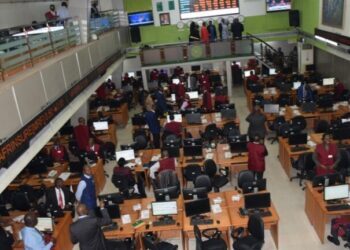In a new law been propose, the National Assembly is seeking to make the Central Bank of Nigeria (CBN) Governor’s tenure six year of one term.
The amendment of the CBN Act 2007, will foreclose a renewable term of the head of the apex bank and make it a single term of six years.
The national assembly through the Senate is also proposing N1 Trillion recapitalization for commercial banks which presently stands at N100 billion.
As the Senate moves for sweeping reforms in the organisation, administration and function of CBN through an amendment bill read for second reading in plenary on Tuesday, its committee on Banking, Insurance and other Financial Institutions, screened nominees for board of Directors of the Bank.
Proposal for six year single term for CBN Governor, Deputy Governors and members of board of Directors, was contained in a bill seeking for amendment of CBN Act 2007 and sponsored by Adetokunbo Abiru (APC Lagos East) in his capacity as Chairman, Senate Committee on Banking.
Abiru in his lead debate on the bill co – sponsored by 41 other members of the committee , said six years single term for CBN Governor , Deputy Governors and board of Directors , said it was geared towards reducing political influence on them .
“The Bill proposes to amend this provision to provide a single non-renewal term of 6 years for the Governor and the Deputy Governors.
“This is the practice adopted by many independent Banks such as the US Federal Reserve and the European Central Bank where their Chief Executive Officers serve only one non-renewable term.
” Empirical evidence shows that a single term for the members of the Executive and Board members of central banks helps to reduce political influence on monetary policy decisions and the time inconsistency problem associated with non-independent central banks,” he said.
On N1 Trillion recapitalization, Abiru in the bill said the proposal seeks to provide that the paid-up capital of the Bank shall be 1 Trillion Naira and may be increased from time to time by such amount as the Government may approve either by way of transfers from the General Reserve Fund or by such other means as the Government, in consultation with the Board, may approve.
The bill also seeks for creation of Coordinating Committee for Monetary and Fiscal Policies since the extant act made no provision for such.
He said: “The current Act made no provision for coordination of monetary and fiscal policies which is the reason that monetary policies of the Bank often diverge from fiscal policies to the detriment of the economy.
“To this end, the Bill introduces for the purpose of coordination of the monetary, fiscal and trade policies, a Coordinating Committee for Monetary and Fiscal Policies.
“The functions of the Committee shall include: setting internally consistent targets of monetary and fiscal policies that are conducive to controlling inflation and promoting financial conditions for sustainable economic growth; Applying caps to any fiscal deficit at a level that can be financed without having recourse to direct monetary financing from the Bank etc.
It also seeks to regulate the issuance of Ways and Means by CBN to the Federal Government .
Specifically as proposed in the bill, while the current CBN Act, empowers the CBN to grant temporary advances to the Federal Government to finance unexpected shortfall in budget revenue without stated time frame , the proposed law wants the advance not to exceed five per cent of the previous year’s actual revenue of the Federal Government and it is to be paid back at the end of the financial year in which it was granted.
“In order to firm up this provision and prevent a repeat of the recent experience in which the Bank’s Ways and Means have fueled inflation and significantly distorted economic management, the Bill proposes the following: any such direct advance to the Government should not exceed 10% of average government actual revenues during the preceding three years.
“For the purpose of determining the government’s actual government revenue, proceeds from asset sales shall be excluded to avoid capturing revenues from exceptional items.
“Such temporary loans should be repaid in full within three months from the date it is made available. This is consistent with global practice.
“The current provision which stipulates before the end of the fiscal year is prone to abuse as it creates a window for the government to obtain overdrafts from the Bank in January and wait until December to make repayment.
“In order to minimize default risk, any sum which becomes outstanding at the end of the expiration of the credit period should be held against and recovered from the proportion of the Federal Government’s FAAC Receipts”, he explained.
Members of Board of CBN Directors screened on Tuesday were Mr. Robert Agbede, Mr. Ado Yakubu Wanka and Mrs Muslimat Olanike Aliyu.










